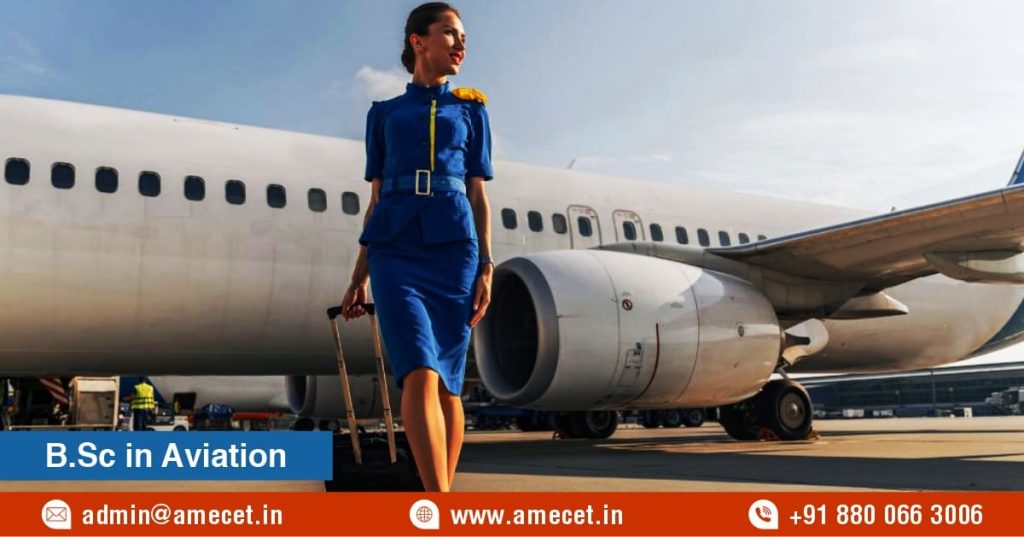What Is the Duration of a B.Sc. in Aviation
Posted on : 27 July, 2024 3:18 pm
A B.Sc. in Aviation typically spans three to four years, depending on the institution and country. This duration includes a mix of theoretical coursework and practical training. Students study core subjects like aviation principles, aircraft systems, and navigation, alongside hands-on experiences in simulators and real-world environments. Some programs offer extended options, such as internships or study abroad, which may lengthen the course. This comprehensive timeframe ensures graduates are well-prepared for diverse careers in the aviation industry, equipped with both academic knowledge and practical skills.
Page Contents
ToggleStandard Duration
The standard duration for a B.Sc. in Aviation is typically three to four years. This timeframe includes a blend of theoretical coursework and practical training. The three-year option often covers core subjects and essential skills, while the four-year program may offer additional modules or specialized training. Most programs are divided into semesters or terms, integrating both classroom learning and hands-on experience. The duration ensures comprehensive education and industry readiness.
Standard Duration:
- Typical Duration: Three to four years.
- Core Curriculum: Theoretical and practical components.
- Three-Year Option: Standard coverage of subjects.
- Four-Year Option: Additional modules or specialization.
- Semester Breakdown: Divided into academic terms.
- Hands-On Experience: Integrated practical training.
- Comprehensive Education: Ensures thorough learning.
- Industry Readiness: Prepares students for careers.
Program Structure
The B.Sc. in Aviation program structure includes a combination of theoretical courses and practical training. Typically, it is divided into semesters or academic terms. Core subjects include aviation theory, aircraft systems, and navigation. Practical training involves hands-on experience in simulators and real aircraft. Students may also complete projects or internships. The program integrates classroom learning with practical application to prepare students for the aviation industry.
Program Structure:
- Theoretical Courses: Aviation theory and core subjects.
- Practical Training: Hands-on experience in simulators.
- Semesters/Terms: Divided into academic periods.
- Aircraft Systems: Study of mechanical and electronic systems.
- Navigation: Learning navigation principles.
- Projects: Applied learning through projects.
- Internships: Real-world experience opportunities.
- Integration: Combining classroom learning with practical application.
Extended Programs
Extended programs in a B.Sc. in Aviation often include additional components such as internships, study abroad options, or extended research projects. These extensions can lengthen the program beyond the standard three to four years. Internships provide practical industry experience, while study abroad opportunities offer global perspectives. Extended research projects allow deeper exploration into specific aviation topics, enriching the overall educational experience.
Extended Programs:
- Internships: Practical industry experience.
- Study Abroad: Global learning opportunities.
- Extended Research Projects: In-depth topic exploration.
- Program Duration: May exceed standard three to four years.
- Industry Connections: Networking and real-world exposure.
- Global Perspectives: Exposure to international aviation practices.
- Enhanced Learning: Additional educational experiences.
- Career Preparation: Broader skill set and knowledge.
Accelerated Programs
Accelerated B.Sc. in Aviation programs are designed to shorten the duration of study, typically completing in two to three years. These programs offer an intensive curriculum with fewer breaks and a heavier course load. Students may need to meet specific entry requirements and maintain high academic standards. Accelerated tracks provide a fast-paced pathway to enter the aviation industry more quickly, balancing rigorous coursework with practical training.
Accelerated Programs:
- Duration: Completed in two to three years.
- Intensive Curriculum: Condensed and fast-paced.
- Fewer Breaks: Reduced time off between terms.
- Heavier Course Load: Increased academic workload.
- Entry Requirements: Higher admission standards.
- Academic Standards: Rigorous performance expectations.
- Practical Training: Integrated with coursework.
- Industry Entry: Faster pathway to careers.
Impact on Career Preparation
The duration of a B.Sc. in Aviation significantly impacts career preparation. A standard program ensures comprehensive knowledge and hands-on experience, while accelerated programs offer a quicker entry into the industry. Extended programs provide deeper insights through internships and global perspectives. Each format equips students with the skills and practical experience necessary for successful careers, ensuring readiness for various roles in aviation.
Impact on Career Preparation:
- Standard Duration: Comprehensive knowledge and experience.
- Accelerated Programs: Faster industry entry.
- Extended Programs: In-depth internships and global insights.
- Hands-On Experience: Practical skills development.
- Skill Acquisition: Technical and theoretical proficiency.
- Industry Readiness: Preparation for aviation roles.
- Networking Opportunities: Connections through internships.
- Career Versatility: Readiness for diverse aviation careers.

